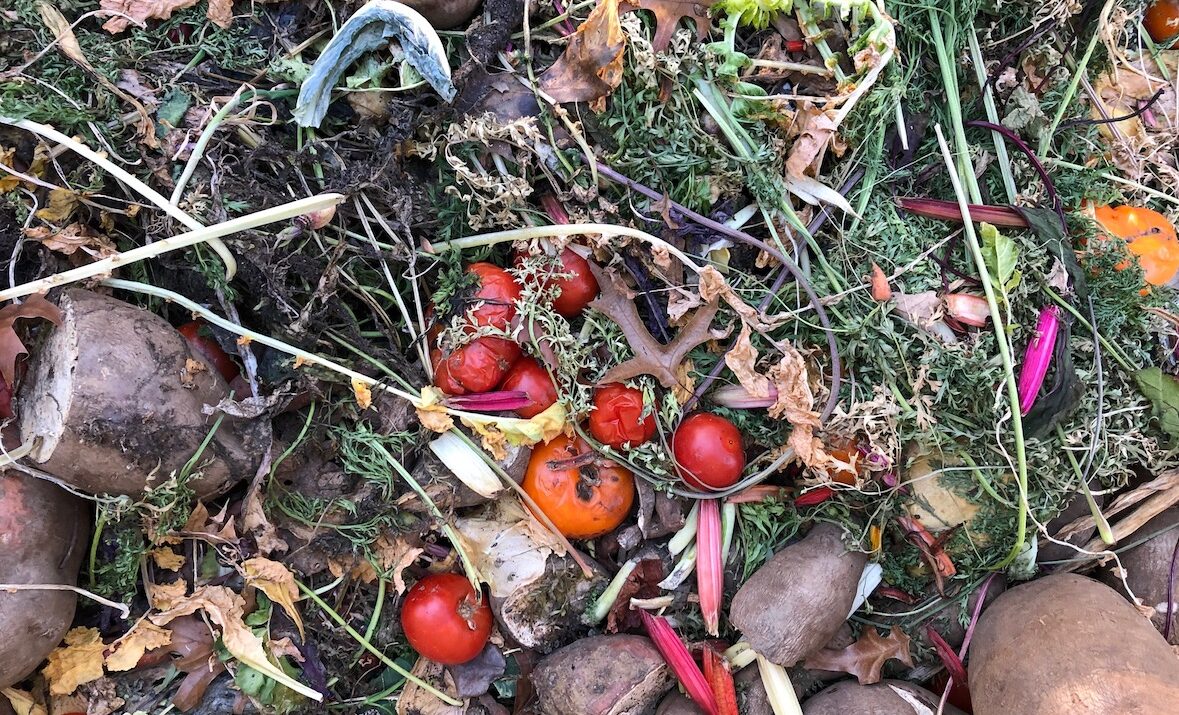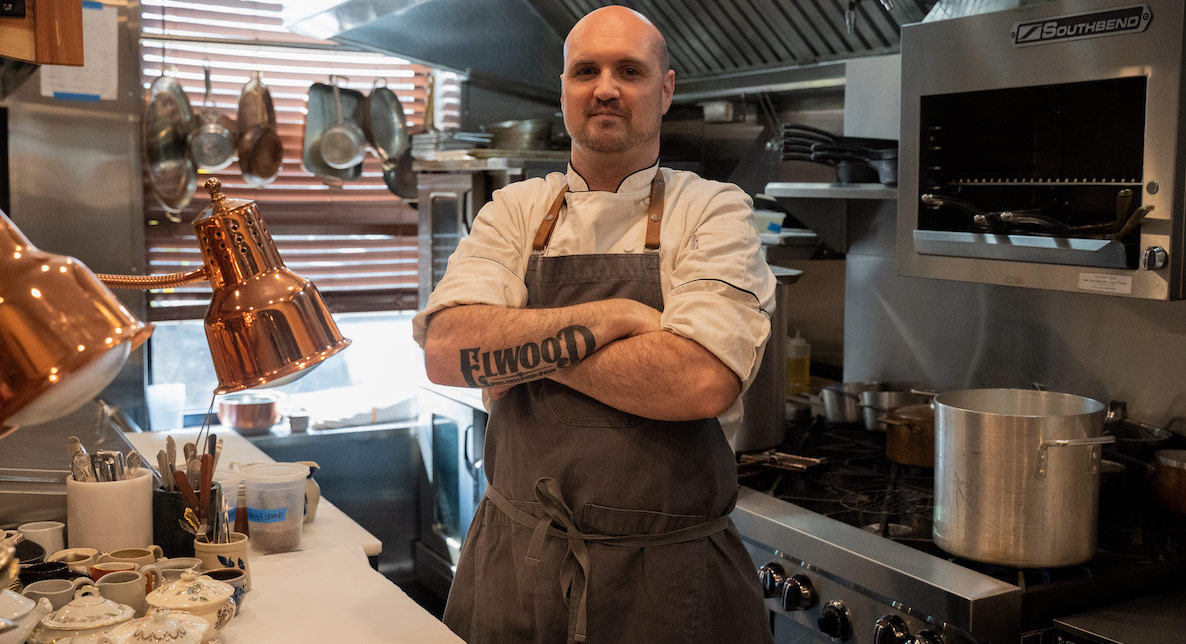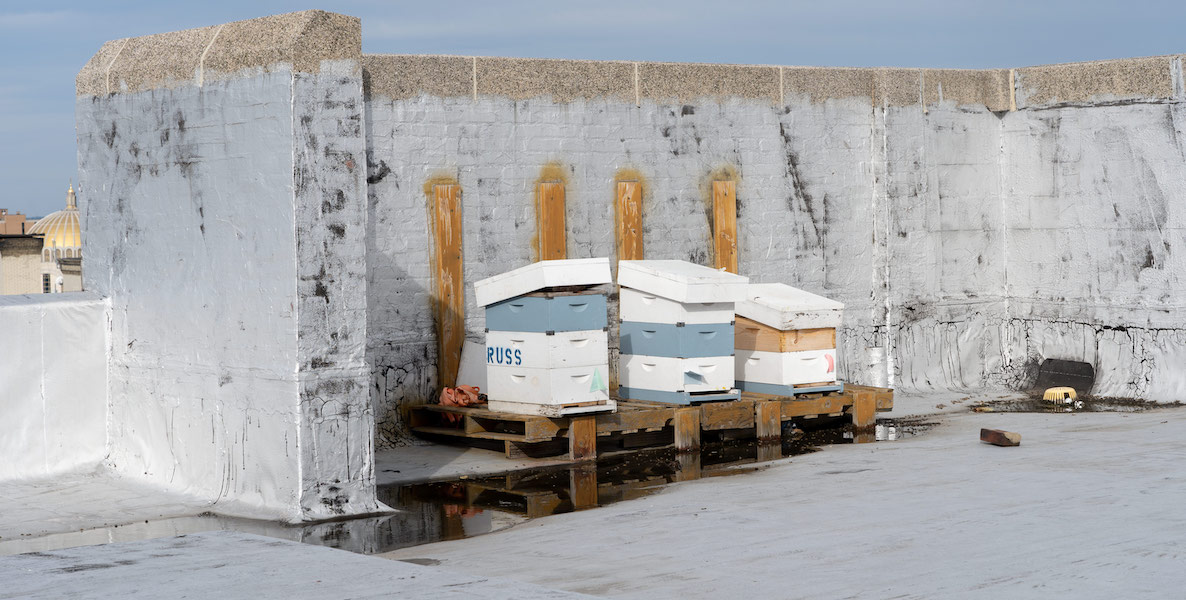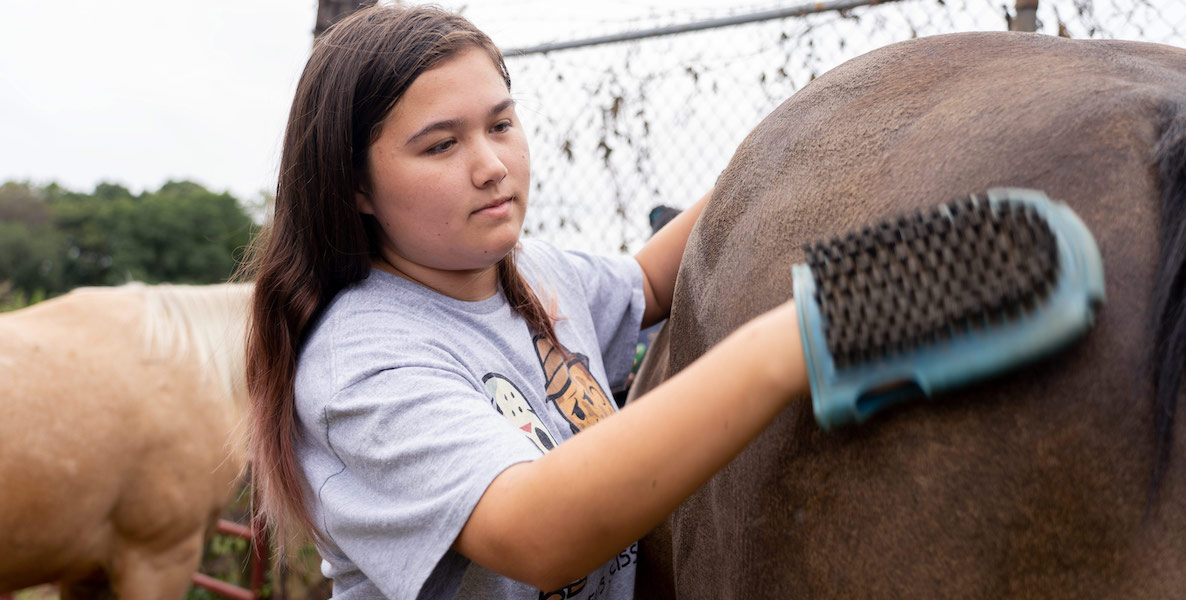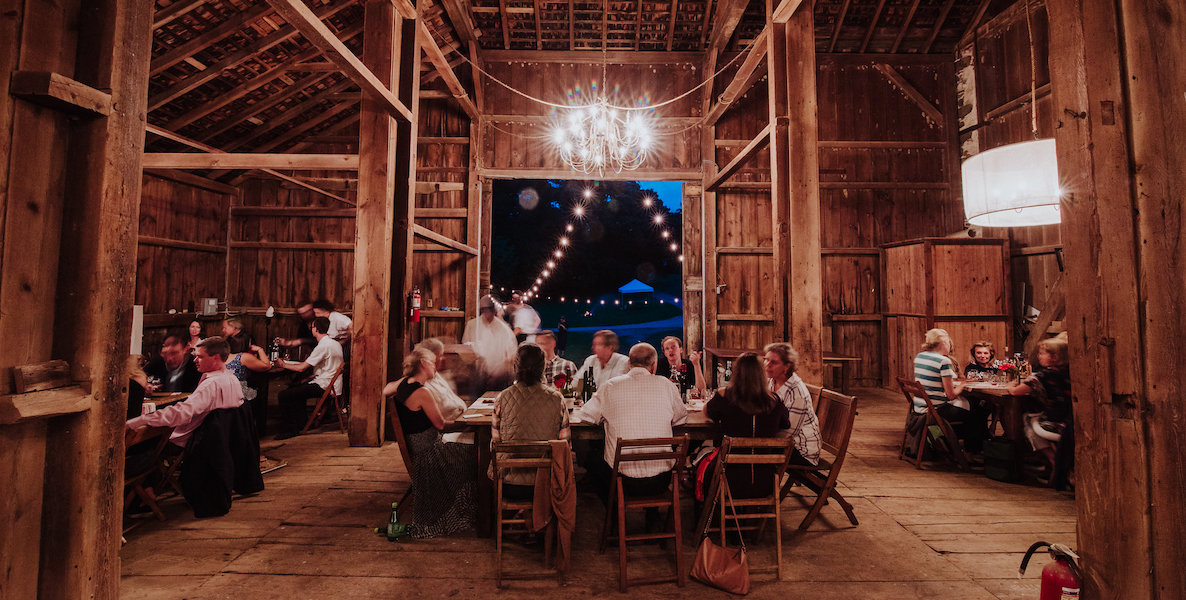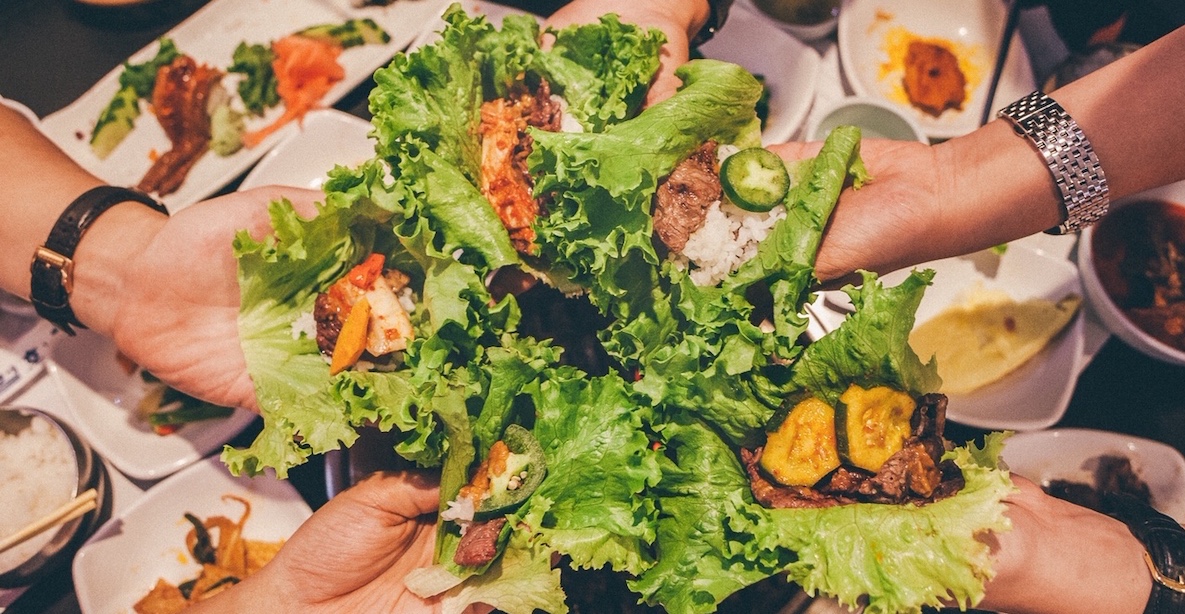Yes, I know that in so many ways 2019 has been terrible. Which is why I feel incredibly fortunate to have spent a year stuffing my face with satay, artisan bread, Korean barbecue, catfish and waffles, and so much more as I’ve roamed the city writing about food and culture as the first Jeremy Nowak Fellow for The Citizen. From Georgian khachapuri in the Northeast to Cambodian dishes flavored with prahok near Miffin Square Park to the wonderfully diverse food scene in Olney.
Along the way I’ve had the chance to ponder such questions as:
- What is the difference between a food hall and a food court?
- Will drinking natural wine make you a better person?
- Why is a ravioli worth more than a pierogi?
To puzzle through lighter-weight questions such as these is, of course, a privilege ![]() of being a food journalist. As I said in my first column—on the emergence of Lao food and culture—it’s when food writing moves beyond the table, however tentatively, into the sticky pots of politics, identity, and culture, that food writers run the risk of being told “stay in your lane” and stick to what’s on the plate.
of being a food journalist. As I said in my first column—on the emergence of Lao food and culture—it’s when food writing moves beyond the table, however tentatively, into the sticky pots of politics, identity, and culture, that food writers run the risk of being told “stay in your lane” and stick to what’s on the plate.
Fortunately, we live in a city that does not agree with this narrow view. In 2019, from activist chefs to urban farmers to city government itself, Philadelphia was again a national leader in tackling the largest issues of food justice, sustainability, and workers rights. Most overtly was the city’s creation of the Food Justice Initiative a few months ago, which will pour $180,000 into six start-ups that help neighborhoods with food-based health initiatives.
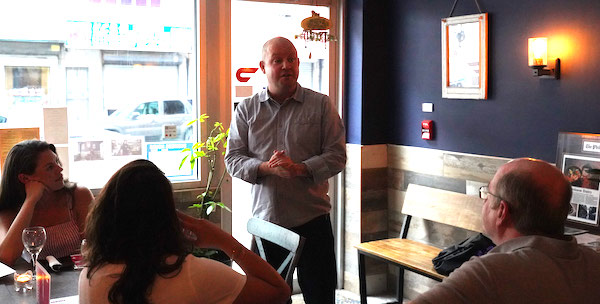
Just two weeks ago, the city’s first urban agriculture director, Ash Richards, kicked off Philadelphia’s first urban agricultural plan. Hundreds of Philadelphians grow food in more than 418 gardens and farms in the city, according to Richards’ initial research. Seventy percent of those gardens are in areas with a high concentration of households living in poverty and little access to fresh, high-quality food.
Richard’s plan is to address the state of crisis facing the city’s community gardens, with more than 200 community open spaces threatened by insecure land rights and development, according to Neighborhood Garden Trust, a land trust affiliated with the Pennsylvania Horticultural Society. “You are witnessing something truly incredible,” Richards said. “It’s been a long time coming.”
In September, I had a chance to spend some time with the next generation of urban farmers at Walter B. Saul High School of Agricultural Sciences in Roxborough.
![]() But the urban agricultural plan comes on the heels of an alarming report, released this fall by the city’s Department of Public Health, on the lack of access to healthy foods. About 13 percent of Philadelphians have low or no access to stores selling healthy food, and more than 80 percent of all retail food stores predominantly sell foods high in sugar, salt and/or fat.
But the urban agricultural plan comes on the heels of an alarming report, released this fall by the city’s Department of Public Health, on the lack of access to healthy foods. About 13 percent of Philadelphians have low or no access to stores selling healthy food, and more than 80 percent of all retail food stores predominantly sell foods high in sugar, salt and/or fat.
“Our concern about the widespread marketing of unhealthy products is that it normalizes those things,” said Dr. Cheryl Bettigole, director of chronic disease and injury prevention with the Philadelphia Department of Public Health, told KYW in September.
Any conversation about food and health must also address our consumption of meat, and nowhere has that discussion been more at the forefront than here in Philadelphia, home to one of the country’s leaders in sustainable, ethical butchery, Heather Marold Thomason of Primal Supply Meats, with shops in Brewerytown and East Passyunk. Thomason insists that, over years of buying cheap meat, American consumers have grown accustomed to an artificial, unrealistic sense of how much meat truly costs. “Our parents bought into this culture of convenience and bulk shopping,” she said. “It isn’t healthy.”
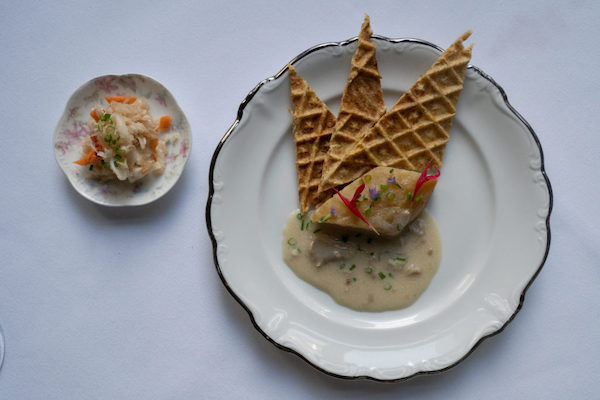
Besides health and animal welfare, Primal Supply’s vision of sustainability also includes people: namely, the farmers who raise the animals. Ultimately, Thomason runs a small local supply chain, where there are no middlemen. Primal Supply now supports more than a dozen local farmers, as well as a family-owned slaughterhouse.
This wider view, that takes into account the people who raise, grow, cook, and serve our food is perhaps the most important issue facing the food community.
Earlier in the year, I went to a series of dinners organized by chef Elijah Milligan, called Cooking for the Culture, meant to showcase and promote the talent of Philly’s young black chefs. The series was an immediate success, selling out more than 60 tickets for each event. “We were supposed to do one dinner. I never thought this would trump all my other projects,” said Milligan. “Something like Cooking for the Culture was long overdue.”
According to the Bureau of Labor Statistics, almost 14 percent of food service workers in 2017 identified as black or African American. But most of those jobs are in the lower ranks of fine dining. A 2015 study published by Restaurant Opportunities Centers United, titled “Ending Jim Crow in America’s Restaurants,” found that 81 percent of management jobs in 133 fine-dining restaurants were held by white workers. It also found that workers of color receive 56 percent lower earnings when compared to equally qualified white employees.
In 2020, go seek out food that’s new to you, perhaps in a neighborhood where you’ve never been before. Experience just how rich and diverse this wonderful, complicated and dynamic city remains.
Ticket sales for Cooking for the Culture help raise money for the Careers Through Culinary Arts Program, a national non-profit that helps underserved high school students who are aspiring chefs. In Philadelphia, C-CAP prepares 1,000 high school students in 17 schools for college and career opportunities in the restaurant and hospitality industry. At both of the dinners I attended, C-CAP students were working in the kitchen. “I want to be there for a kid who thinks, ‘Hey, I want to be a chef, but I don’t have someone who looks like me to model myself after,’” Milligan says.
Meanwhile, Cristina Martinez of South Philly Barbacoa continued her tireless work as an advocate for immigrants rights and to promote a public dialogue on the conditions faced by undocumented workers in the restaurant industry. Martinez and her husband Ben Miller hosted a number of fundraisers for undocumented workers — which was as much about “battling a lot of false narratives” as it was about money, Miller said.
Martinez’s reputation has by now spread worldwide and this year she was nominated for the Basque Culinary Prize. “Immigrants are hidden away; they are exploited,” she said. “This is the system that I try to make people see. I did not care about what could happen to me; I was determined to tell the truth.”
More recently, her famed taqueria stopped serving pork, in an effort to be more ![]() inclusive to the 150,000 Muslims who live in Philadelphia. “It’s all been an intentional shift for the last seven years, trying to get to this point where our restaurant is inclusive and universal, and everybody can be on the same equal plane,” Miller told Adam Erace for his piece at Heated.
inclusive to the 150,000 Muslims who live in Philadelphia. “It’s all been an intentional shift for the last seven years, trying to get to this point where our restaurant is inclusive and universal, and everybody can be on the same equal plane,” Miller told Adam Erace for his piece at Heated.
At this time of year, the food writer is almost always asked: “What food trends will we see in the new year?” And trying to answer this question is how media people end up saying dumb, faux-trendspotting things such as “Filipino food is having its moment!” Certainly, I may have said something silly like this in my own unbridled excitement over the new Lalo food stall in the Bourse, or over my Kamayan meals at Perla or Sarvida, with the pinakbet, lumpia shanghai, lechon kawali, whole chicken, and pompano piled on atop banana leaves and eaten with our hands.
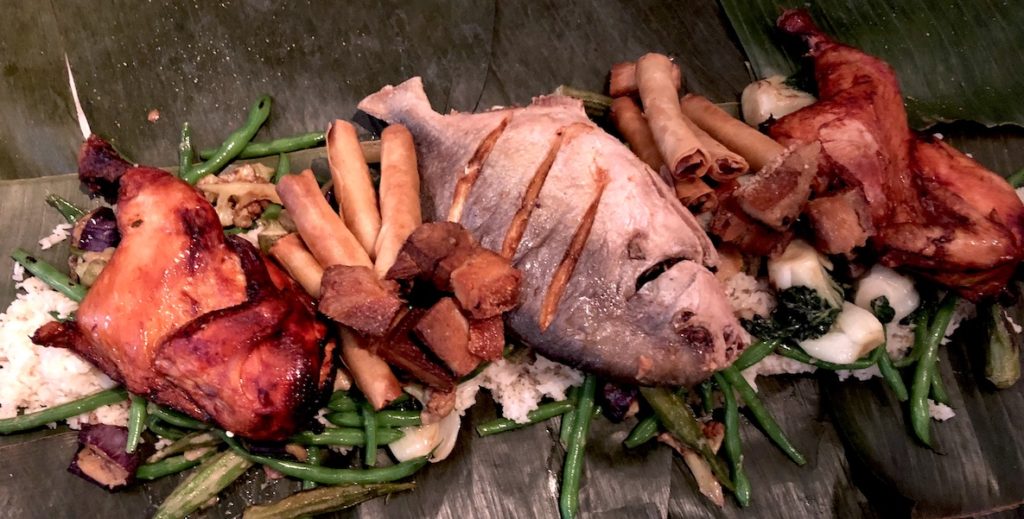
But the truth of the matter, is that Filipino food—just like the food of Laos, Indonesia, Poland, and every other cuisine in the world—has always been having its moment. It’s only new to the outsider discovering it for themselves for the first time.
Which is why I’m not offering any “food trends” to look for in 2020. Instead, go seek out food that’s new to you, perhaps in a neighborhood where you’ve never been before. Experience just how rich and diverse this wonderful, complicated, and dynamic city remains.
Jason Wilson was The Citizen’s 2019 Jeremy Nowak Fellow, funded by Spring Point Partners, and will continue writing a monthly column for The Citizen in 2020. He is the author of three books, including the recent The Cider Revival, series editor of The Best American Travel Writing, and writes for the Washington Post, New York Times, New Yorker and many other publications. You can find him at jasonwilson.com.
Photo courtesy Seorabol



